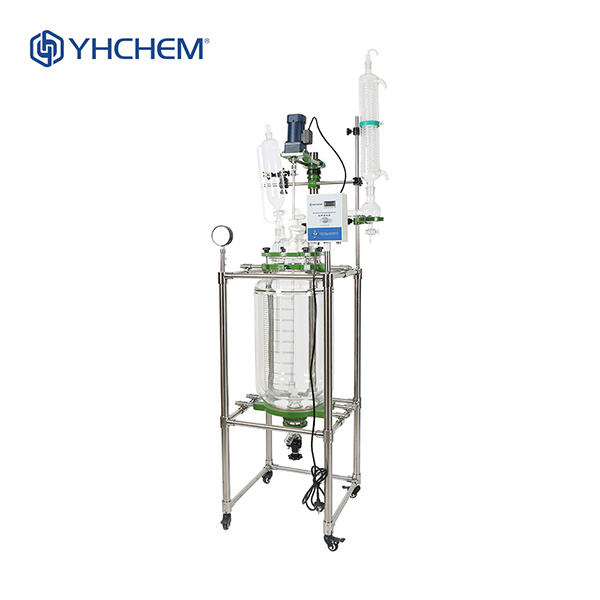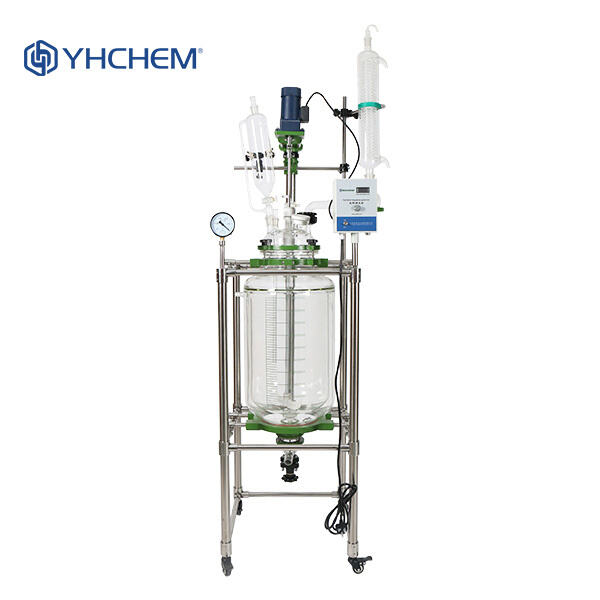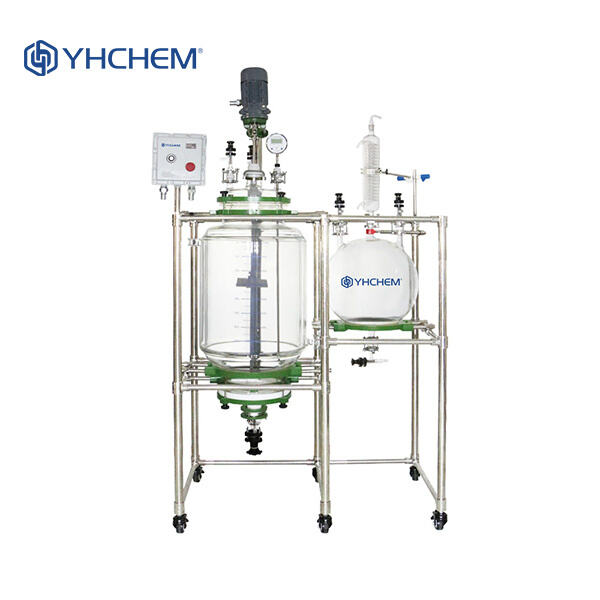Well, if you want to do exciting science experiments in the lab, you’ll need to invest in a special tool called the 50L jacketed glass reactor. This awesome tool is vital to lots of different chemical reactions and experiments. Now, let’s discuss the 50L jacketed glass reactor and its unique features and benefits.
What is 50L Jacketed Glass Reactor Definition of 50L 50L glass reactor is a kind of pilot glass reactor used in the laboratory, industrial field for research use.
The 50L Glass reactor is a large glass vessel that can hold 50 liters of liquid. It features unique double-layer design with space in between and can spray in two directions. This space can take up the liquid in which the temperature is controlled. This shape traps the temperature inside the reactor to keep it exactly right, making it perfect for experiments that require precise temperatures.
It can be seen that there are many reasons to use a 50-liter jacketed glass reactor, and one of the most important is that it can accurately control the temperature of the reaction. As many different chemical reactions need different temperatures to work, this is important. With this reactor, researchers can ensure that the temperature does not change during the reaction. That helps them produce better and more trustworthy results.

The 50L is ideal to apply to control the temperature with the jacketed glass reactor. Among these include a digital temperature controller, heating and cooling apparatus and insulating materials that regulate the temperature. Such properties assist scientists in performing successful and accurate chemical reactions.

The 50l jacketed glass reactor’s material is anti-acid, and anti-alkali. This is the kind of glass that can survive really hot temperatures and chemicals. It’s ideal for experiments that involve rugged materials and extreme temperatures. The reactor also features an inorganic metal frame that protects the glass container, ensuring a stable glass container during experiments.

Many people don’t know how to use 50L glass reactors. And they don’t know what they’re using. In laboratories, scientists rely on it for chemical reactions, creating new compounds and cleaning materials. It is used in factories to create chemicals, medicines and other products in vast quantities. It is an important piece of equipment in many industries, as it regulates temperature effectively.
We possess leading technological innovations R and D strength globally, actively introducing international advanced technologies continually conducting independently driven technological innovations and innovations. have established joint labs in collaboration with research institutions such as the Shanghai Chemical Industry Research Institute East China University of Science and Technology. These laboratories are dedicated offering customers most 50l jacketed glass reactor products and solutions.
Our products have assisted thousands well-known businesses more than 100 countries well as regions throughout 50l jacketed glass reactor, gaining the trust of many recognitions. We're committed to improving our products and services according to the feedback of our customers.
We have strong financial foundation a long-lasting capacity for development a publicly traded company. We will continue to adhere market demand-oriented principles, driving continuous 50l jacketed glass reactor innovation technological advances to create more value and opportunities for customers, investors and employees.
We 50l jacketed glass reactor range of products that include glassware well as temperature control, reactions and distillation equipment. Our product line made to meet the demands of various industries. With number of services stations, We offer our customers scientific single-stop services and products that provide prompt technical support after-sales throughout the entire usage process.